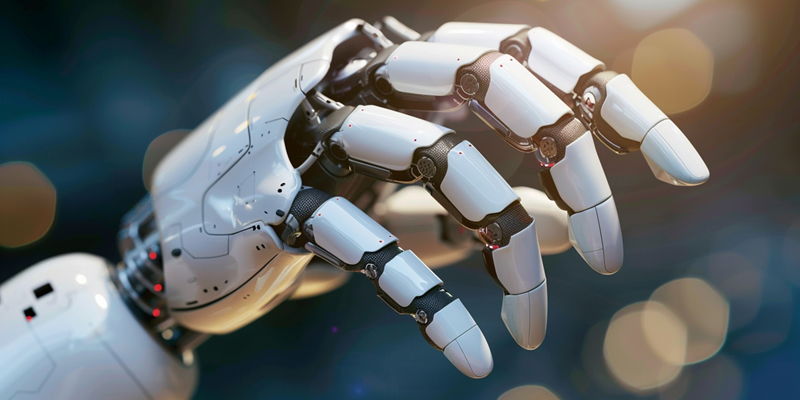Generative AI is like a cutting-edge whirlwind sweeping through the landscape of data science, redefining the way data is managed, processed, and analyzed. Its role extends beyond mere number-crunching to actual content creation and advanced pattern recognition. This technology streamlines existing processes, thus allowing data professionals to focus on more complex, strategic insights. We are standing at the nexus of a major industrial shift, where data scientists are no longer encumbered by tedious tasks thanks to generative AI—truly, the dawn of a new era in data science.
The Rise of the “Super Assistant”
Generative AI has entered the field of data science as an efficient “super assistant,” assuming responsibilities that were once the domain of data professionals. Its prowess in handling extract, transform, load (ETL) processes not only ensures accuracy but also significantly speeds up data preparation. A data scientist who might have spent days cleansing and prepping data can now redirect efforts to more intricate queries and advanced analytics. This seismic shift is freeing up time for innovation and exploration, enabling data scientists to evolve from data handlers to strategic problem-solvers.
This AI-driven transformation reduces the notorious 80% of time data scientists once dedicated to preprocessing. As generative AI takes on these tasks, it opens up vast expanses of time and energy for data professionals to plunge into deeper, more meaningful analyses. It’s a reinvention of data science roles that places a premium on intellectual creativity over mundane task execution.
Accelerating Routine Data Science Processes
Generative AI transcends its role as assistant and becomes a catalyst for efficiency, significantly reducing the workload in the initial phases of data analysis. Imagine the traditional painstaking efforts of data preprocessing—cleaning, formatting, normalizing—being swiftly managed by AI. This automation of mundane tasks results in pristine datasets, primed for analysis, and impeccably embedded codes that lay the groundwork for more sophisticated data science operations.
The repercussions of this acceleration are profound. With generative AI handling the bulk of routine procedures, the door swings wide open for innovative approaches to data science. The very fabric of the data workflow is altered, showcasing AI’s growing mastery over tasks that once clogged the pipelines of productivity. It’s not just about speed; it’s about the creation of a more agile data environment where scientific inquiry flourishes unhindered by procedural drudgery.
Harnessing Community-Driven Innovation
The blossoming of generative AI owes much to the open-source communities—vibrant hives of developers contributing to the collective intelligence. Here, innovation thrives at breakneck speed, outstripping the isolated efforts of proprietary solutions. The communal ethos of open-source projects accelerates the evolution of generative AI, fostering an environment where anyone can contribute to the next breakthrough in data science.
Community-driven innovation ensures that generative AI benefits from a wide array of perspectives and expertise. The result is an arsenal of tools and methodologies constantly refined and updated by a global cadre of contributors. This is the democratization of technology at its most potent—where shared knowledge leads to shared progress and the rapid iteration of generative AI functionalities.
Specialized Knowledge as a Complementary Asset
Despite the leaps in automation that generative AI provides, it lacks the intrinsic ability to construct novel insights. The demand for data scientists with deep domain expertise grows ever stronger. Such professionals are needed to make nuanced decisions and to evaluate the veracity and applicability of AI-generated analyses. Their skills become even more significant in a landscape where human discernment is the gold standard against which AI outputs are measured.
Generative AI cannot substitute for the human capacity to formulate a hypothesis or gauge the subtleties of an analysis. Data scientists possessing specialized knowledge remain irreplaceable as they interpret, scrutinize, and integrate AI formulations into comprehensive strategic insights. This complementary relationship between AI and human expertise marks the crux of the next stage in data science—a symphony of human acumen and machine efficiency.
Upskilling Business Professionals through AI
For business professionals, generative AI represents a golden opportunity to elevate their data acumen. Tools such as AI chat assistants are more than just conveniences; they serve as bridges to advanced data science skills. The journey from managing spreadsheets to comprehending machine learning and statistical analysis becomes less daunting with AI tutors facilitating the learning curve.
This integration of advanced tools is pivotal for developing a critical mindset essential for data evaluation. As generative AI applications become mainstream in business scenarios, the ability to critically analyze their output separates knowledgeable decision-makers from mere data consumers. It’s a new age of data literacy where embracing technology leads to a profound understanding of its capabilities and limitations.
Data Governance as a Cornerstone for Compliance
With generative AI rapidly transforming the data science arena, it’s crucial to maintain rigorous data governance to ensure compliance and ethical use of technology. This management of data, considering privacy, security, and regulatory requirements, provides a framework through which generative AI can be leveraged responsibly. It is a cornerstone that supports the symbiotic relationship between the innovative capabilities of generative AI and the safeguarding of data integrity and ethical standards. As generative AI continues to evolve and integrate itself into various sectors, strong data governance ensures that this transformative journey is not only revolutionary but also secure and compliant with global standards.

